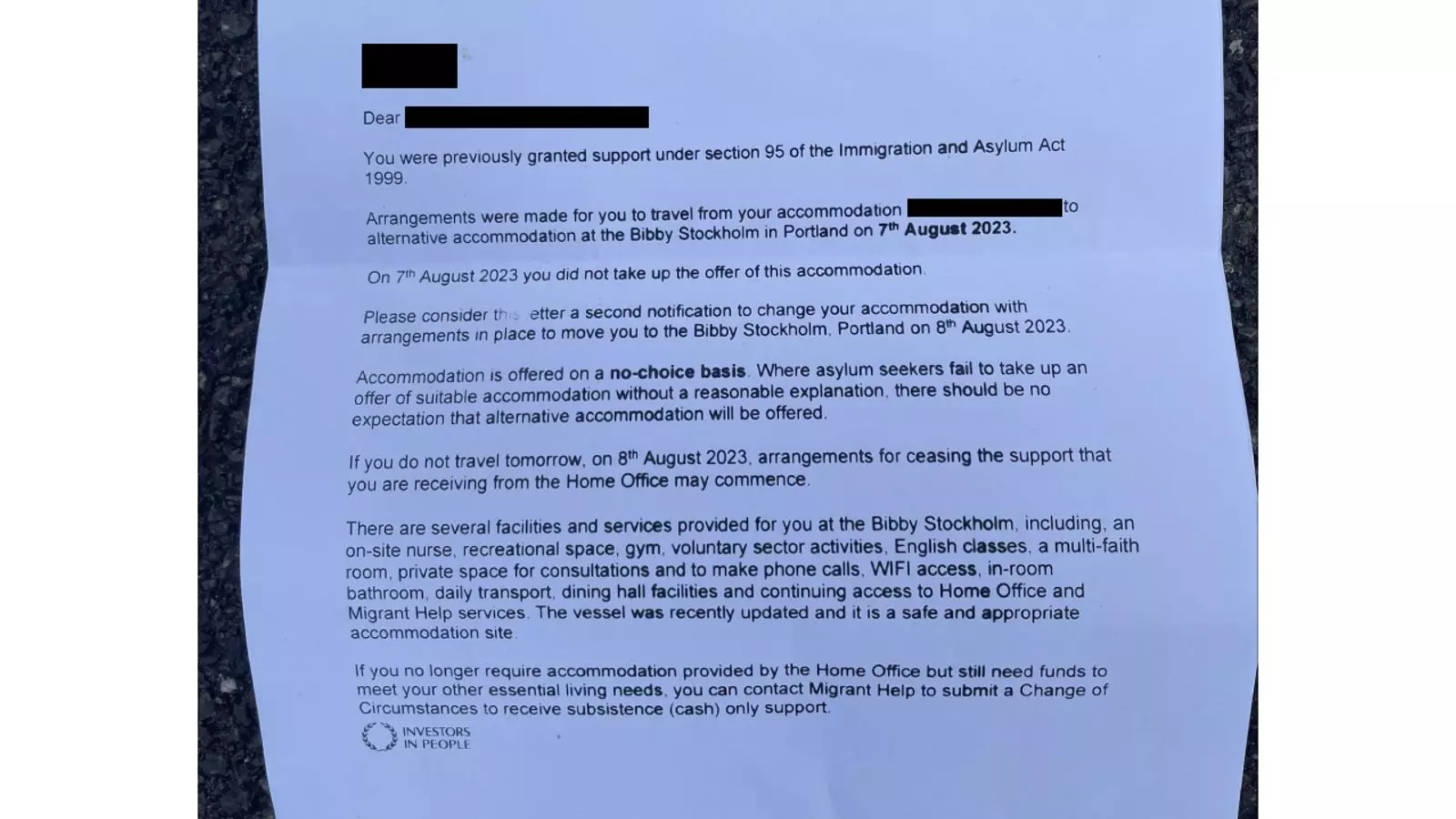Asylum seekers who did not board the Bibby Stockholm barge on Monday have been given until today to reconsider their decision. If they fail to do so, their government support will be cancelled. The UK Home Office sent a letter to those who declined the offer, stating that failing to take up suitable accommodation without a reasonable explanation would result in the termination of support. This ultimatum has raised concerns about the potential homelessness of these individuals, as the consequences of refusing the barge accommodation remain unclear.
Questioning the Legality of the Government’s Actions
Critics argue that the government may be violating its legal obligations towards these asylum seekers. Just Secretary Alex Chalk suggested that those who object to the barge accommodation can seek legal advice and challenge it in court. However, this approach raises concerns about the fairness and legitimacy of the government’s actions. The treatment of asylum seekers should adhere to legal principles and ensure their safety and well-being.
“Safe and Decent” or “Inhumane” Accommodation?
The government has defended the barge accommodation, describing it as “safe and decent” and highlighting the cost-saving benefits compared to four-star hotels. However, humanitarian organizations and activists have expressed strong objections to this approach. Care4Calais, a charity assisting asylum seekers, claimed that legal challenges had resulted in transfers being cancelled for some individuals. Concerns were raised about the suitability of the accommodation for vulnerable individuals with disabilities, mental health problems, and those who had experienced torture or persecution. Housing such individuals in a “quasi floating prison” like the Bibby Stockholm was deemed inhumane by Care4Calais CEO Steve Smith.
Amnesty International UK’s refugee and migrant rights director, Steve Valdez-Symonds, criticized the government’s actions, stating that it appears they will go to great lengths to make people seeking asylum feel unwelcome and unsafe in the country. Comparing the barge to the prison hulks of the Victorian era, Valdez-Symonds labeled the accommodation “utterly shameful.” It is crucial to create an environment that respects the dignity and rights of asylum seekers, particularly those who have fled terror, conflict, and persecution.
While the government maintains that its policy aims to ensure fairness to British taxpayers, it is essential not to lose sight of the humanity and well-being of asylum seekers. A fair system should be balanced with compassion and respect for individuals’ unique circumstances. Accommodation options should consider the specific needs of vulnerable individuals and provide a safe and supportive environment.
The challenges and legal disputes surrounding the implementation of the barge accommodation highlight the importance of transparency and accountability in government policies. Clarity is needed regarding the criteria for suitability and the consequences for individuals who decline accommodation. It is imperative to review and address concerns raised by humanitarian organizations, legal representatives, and activists. Open dialogue and collaboration can lead to more effective and humane solutions for asylum seekers.
The ultimatum given to asylum seekers who declined barge accommodation raises significant ethical and legal questions. It is essential for the government to ensure the well-being and safety of individuals seeking asylum while also considering the concerns and needs of British taxpayers. Striking the right balance between fairness and humanity is crucial in creating a system that respects the rights and dignity of all individuals.


Leave a Reply